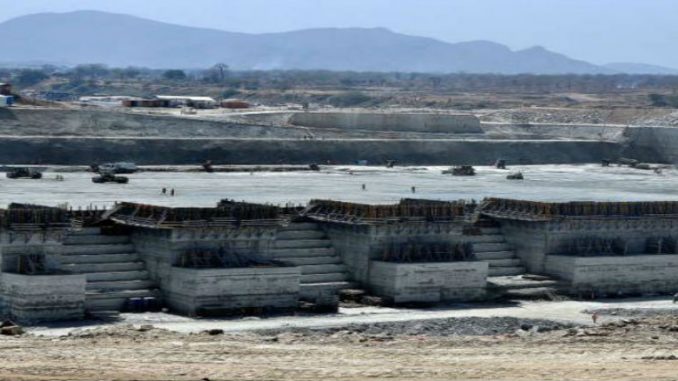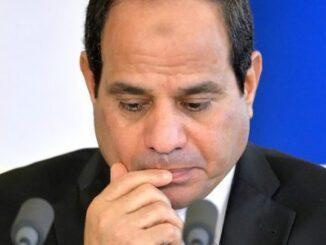
Over the past three days, the 14th round of meetings of the Tripartite National Committee on studying the Renaissance Dam effects on the Nile water share were held in Addis Ababa with a possible failure in negotiations looming, according to Al-Masry al-Youm, an Egyptian daily newspaper.
The meetings were attended by specialists from Egypt, Sudan and Ethiopia.
On Tuesday, the Egyptian Ministry of Irrigation said in a statement that some remaining unresolved points will be discussed later, without announcing the date and place of the new meeting, which was described by sources concerned with the Nile water file as a failure in negotiations on the Dam studies.
The sources said that the current stage is where technical details on the method to be followed in conducting studies on the Dam are determined.
During the 14th round, observations by the three countries on the draft preliminary report submitted by the French Consultative Office in late March were discussed.
The report prepared by the French consultant firm in March was on the studies conducted by the firm on the hydro-logical, hydraulic, environmental and economic impact of the Dam.
The positions of the three states were clarified on the consultant’s understanding of the terms of reference in the studies during the meeting.
The sources mentioned that the three countries reviewed the list of data required by the consultant firm to start studies during the 14th session.
During the meetings, they agreed on the mechanism and methodology of data exchange and verifying with the consultant, the sources added.
Sudanese sources said that the Ethiopian side was obstinate toward Egyptian options during the Tripartite Committee negotiations, especially on the period of filling the dam lake with Nile water, expected to minimize Egypt’s annual share of Nile water.
The sources added that Ethiopia maintained an inflexible position as well toward the mechanism of running the dam, disregarding Egypt and Sudan’s needs of water.
It seems that the Ethiopian side is attempting to prolong negotiations on the terms of reference and technical studies until the completion of the dam construction and the start of operation – this is in violation of the agreement of principles signed by the heads of the three countries in the Sudanese capital Khartoum in March 2015, said the Sudanese sources.
The construction Grand Ethiopian Renaissance Dam (GERD) on the Blue Nile by a major Italian construction company, in a contract with the Ethiopia, remains a source of great tension between Ethiopia and Egypt.
The dam, which begun in 2011,is due for completion in the middle of this year. The dam will hold a massive 79 billion cubic meters of water, and will be the largest hydroelectric power plant in Africa.
The Blue Nile joins the White Nile in the southern part of Sudan just north of Khartoum to form the Nile River, known as the Life of Egypt, upon which Egypt heavily depends.
Egypt sees the Nile as its sole source for the survival of its population and, historically, has seen itself as its sole natural guardian. When construction began, Egypt demanded it cease without any precondition, and claims it has the right to own a 9o% of the Nile waters for its 60 million people.
In response, Ethiopia argued on the basis of unseen studies, that there would be no reduction of water downstream, as all the Blue Nile waters would be cycled through the dam and eventually reach the downstream countries on its way to the Mediterranean.
In fact, it claims there will be more water because there will be less evaporation.
It so worth to mention that Ethiopia has never accepted the 1929 colonial treaty between Egypt and the UK (on behalf of its colony of Sudan) and a following one in 1959 Ethiopia claim its unfair because it did not reflect its rights.
Nowadays, Ethiopia seeks with all its strength to promote the international water laws that govern the 263 trans-boundary rivers and lakes across the world.
In fact, the Nile river crosses ten countries, with some contributing very little, while Ethiopia, with its high mountains, contributes about 70 % of the water.
In 1999, the ten riparian states began the Nile River Basin Initiative to create a constructive dialogue on sharing the river’s resources, promoting peace and stability in the region.
Ethiopia now believes it is strong enough to have taken the unilateral decision to abrogate any treaty and establish the dam de facto existence.



